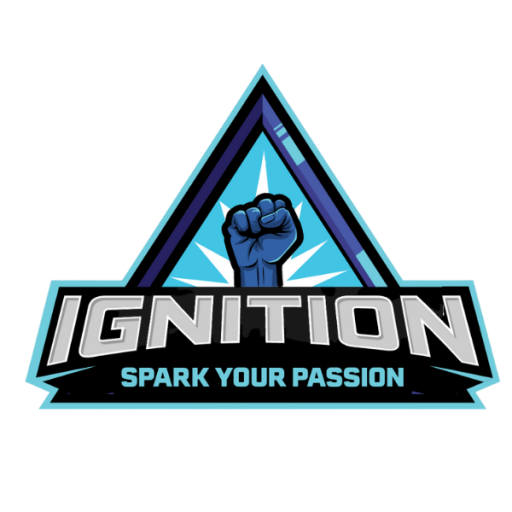As parents and carers of autistic teens or young adults, helping them develop life skills is crucial for their independence and overall quality of life. These skills cover everything from basic self-care to more complex social interactions and play a vital role in daily functioning. Let’s dive into how we can support their growth and make everyday tasks a little easier.
Understanding Life Skills & Autism
Life skills refer to the essential abilities needed to navigate everyday life successfully. Understanding life skills is crucial for the development and independence of autistic individuals. From practical daily tasks like cooking and cleaning to social interactions and emotional regulation.

We’ve broken down the core life skills below:
- Self-Care Skills: These include personal hygiene, dressing, grooming, and essential health care.
- Domestic Skills: These involve household chores such as cooking, cleaning, laundry, and managing a living space.
- Social Skills: These encompass communication (verbal and non-verbal), understanding social norms, making friends, dating and developing healthy relationships, and resolving conflicts.
- Academic and Work Skills: These cover organisational abilities, time management, study habits, and job-related skills.
- Financial Skills: These include budgeting, saving, and understanding financial transactions.
- Community Skills: These are skills that involve navigating public transportation, shopping, and accessing community resources.
Below, you’ll find some strategies and tips to help you, as a parent or carer, to support your autistic teen or young adult in developing these essential life skills.
Developing Self-Care Skills
Self-care is a foundational aspect of independence. Everyday Health defines this life skill as:
“Self-care means taking care of yourself so that you can be healthy, you can be well, you can do your job, you can help and care for others, and you can do all the things you need to and want to accomplish in a day”.
Self-care can be emotional, physical and spiritual, and it’s important to acknowledge that everyone’s version and capacity for self-care is unique to them.

Here are some tips to help your autistic teen or young adult master self-care skills:
- Create a Routine: Establishing a daily routine can provide structure and predictability. Visual schedules or checklists can be helpful tools.
- Use Visual Aids: Picture cards, charts, and videos can illustrate each step of a self-care task, making it easier to understand and follow.
- Practice Consistently: Regular practice helps reinforce skills. Encourage daily practice of personal hygiene tasks such as brushing teeth, showering, and dressing.
- Break Down Tasks: Divide complex tasks into smaller, manageable steps. Focus on mastering one step at a time before moving on to the next.
Check out the Sample Morning Checklist that Autism Speaks provides on their website. A daily checklist like this will help your loved one by giving them the small tasks needed each morning.
Enhancing Domestic Skills
Domestic or living skills are essential for maintaining a clean and organised environment. They include tasks like cooking, doing household chores like laundry, washing dishes and vacuuming. These skills help your autistic teen or young adult develop the skills needed to live more independently.

Here are some ideas on how you can support the development of these skills:
- Start Simple: Begin with tasks like making a bed or setting the table. Gradually introduce more complex chores such as cooking and laundry.
- Provide Clear Instructions: Use simple, step-by-step instructions and demonstrate tasks whenever possible.
- Use Visual Supports: Visual schedules and checklists can guide your teen through household tasks.
- Encourage Independence: Allow your teen to take on responsibilities and complete tasks independently. Offer guidance and support as needed but avoid doing their tasks for them.
Building Social Skills
Social skills are crucial for forming relationships and functioning in society. They help all of us build relationships and make friends. However, autistic individuals often find learning and building these skills harder. Social skills for autistic teens and young adults include:
- working out what other people are thinking and feeling
- understanding facial expressions and body language
- adjusting to new social situations
- solving social problems, like what to do when you disagree with someone
- understanding unwritten social rules
- sharing interests with other teenagers.

Here are some strategies to help your autistic teen develop social skills:
- Role-Playing: Practice social scenarios through role-playing. This can help your teen learn appropriate responses and behaviours in various situations.
- Social Stories: Use social stories to explain social norms and expectations. These short narratives can illustrate how to behave in different social contexts.
- Encourage Social Interaction: Provide opportunities for your teen to interact with peers, such as joining clubs, attending social events, or participating in group activities like Ignition Gamers. Our social gaming programs are powerful for helping youth develop social skills and build greater independence.
- Model Social Behaviour: Demonstrate positive social behaviours and interactions. Your autistic teen or young adult can learn by observing how you communicate and interact with others.
Fostering Academic and Work Skills
Academic and work skills are essential for success in school and employment. Would you believe that:
“In Australia, the unemployment rate of Autistic people is 31.6 per cent, which is three times the rate of people with disability and almost six times the rate of people without disability. “
Source: Amaze
This statistic highlights how vital the development of academic and work skills are for our autistic youth.

Here’s how to support your teen or young adult in developing these skills:
- Organisational Tools: Use planners, calendars, and apps to help your teen manage time, assignments, and tasks.
- Set Realistic Goals: Break down larger tasks into smaller, achievable goals. Celebrate progress and achievements to build confidence.
- Provide a Quiet Workspace: Create a distraction-free environment for studying or working. Ensure the space is well-organised and equipped with necessary supplies.
- Encourage Work Experience: Support your teen in gaining work experience through internships, volunteer work, or part-time jobs. This can help develop job-related skills and build a strong work ethic.
If your loved one is ready to enter the workforce, we encourage you to consider additional skills courses or training or working with a Disability Employment Services provider employment agency for further support.
Teaching Financial Skills
Financial literacy is important for managing money effectively. The earlier you can help your autistic child develop these skills, the better. Teaching them about finances early in life will help them feel prepared and better able to navigate money matters and live more independently as adults.

Here are some tips to teach your teen or young adult more about finances:
- Budgeting: Teach your loved one to create a budget and track expenses. Use visual aids like charts and graphs to make the process more understandable.
- Saving: Encourage saving by setting up a savings account. Discuss the importance of saving for future goals.
- Practical Experience: Involve your teen or young adult in financial transactions, such as shopping or paying bills. This hands-on experience can build confidence and competence.
- Use Financial Apps: Introduce apps that teach financial literacy through interactive games and activities.
Navigating Community Skills
Being able to navigate the community is essential for independence. It involves various skills, such as understanding public transportation, asking for help, and feeling comfortable in different social settings. Mastering these skills allows autistic teens and young adults to access resources, participate in social activities, and take on responsibilities like shopping or attending appointments.
Here’s how you can help your autistic teen or young adult develop their community skills:
- Public Transportation: Teach them how to use public transportation by practising routes together. Use maps and schedules to plan trips.
- Shopping Skills: Take your autistic loved one shopping and involve them in making shopping lists, comparing prices, and handling money.
- Accessing Community Resources: Familiarise your teen with community resources such as libraries, recreational centres, and healthcare facilities. Practice using these resources together.

Did you know Coles has rolled out their Quiet Hour experience to supermarkets nationally? During this time, they reduce sound Monday to Friday between 6:00 pm to 7:00 pm, with some stores also reducing lighting. This is the perfect opportunity to visit and encourage those shopping skills. To find your local participating store, head to the Coles website.
Navigating life skills with your autistic teen or young adult
Helping your autistic teen or young adult develop life skills is crucial to supporting their future independence and improving their quality of life. By providing structured support, clear instructions, and consistent practice, you can confidently empower your loved one to navigate daily challenges.
Remember, each individual is unique, and progress may vary. Celebrate every achievement, no matter how small, and continue encouraging and supporting their journey towards independence.
Stay updated on our latest tips and activities to support your teen‘s development by visiting our website regularly. And, if you‘re interested in exploring our social gaming activities for your autistic teen or young adult – reach out – we‘d love to hear from you!







